Year 8 Negative Numbers Worksheets
Calculations Crossing Zero (A)
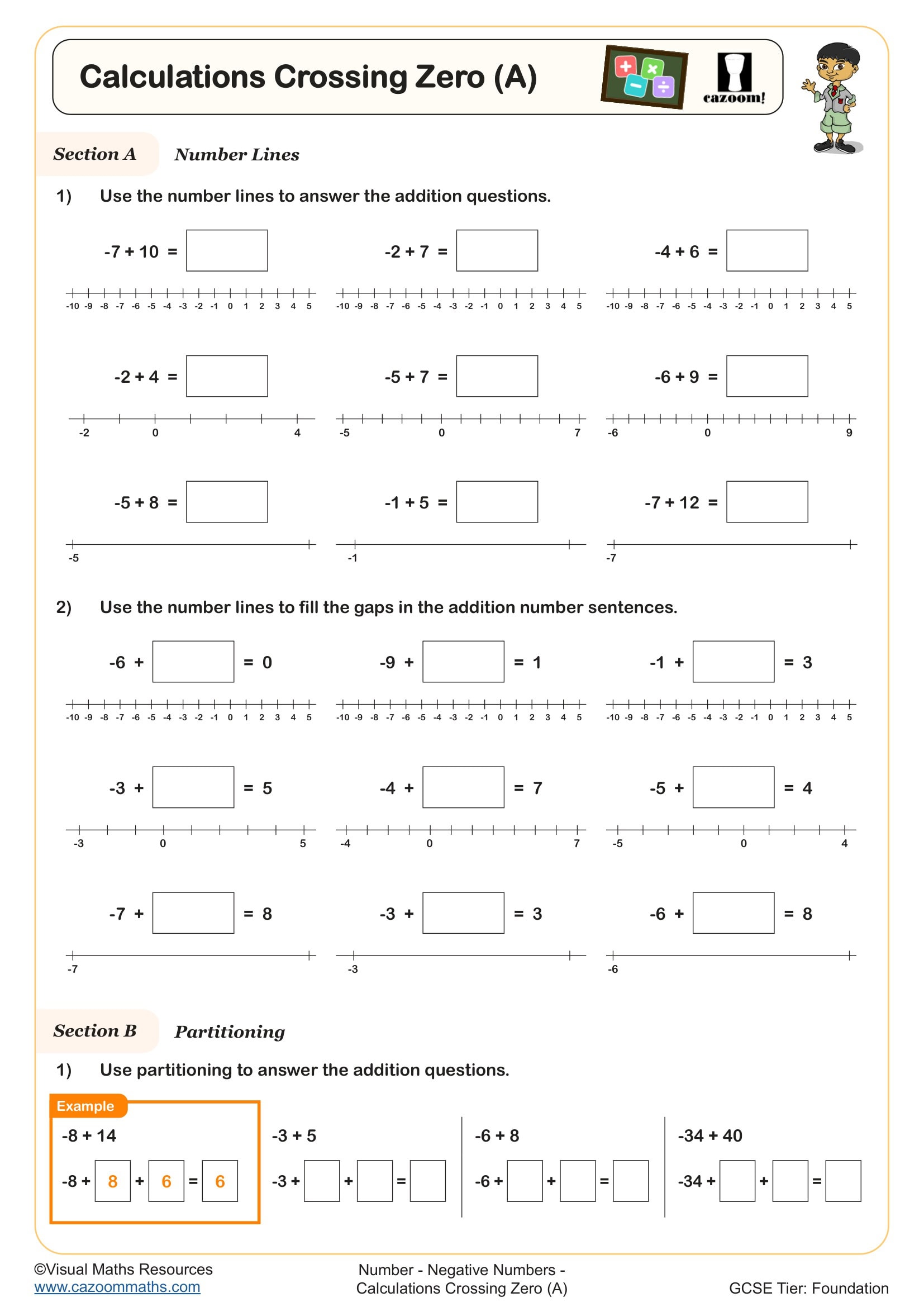
Calculations Crossing Zero (B)
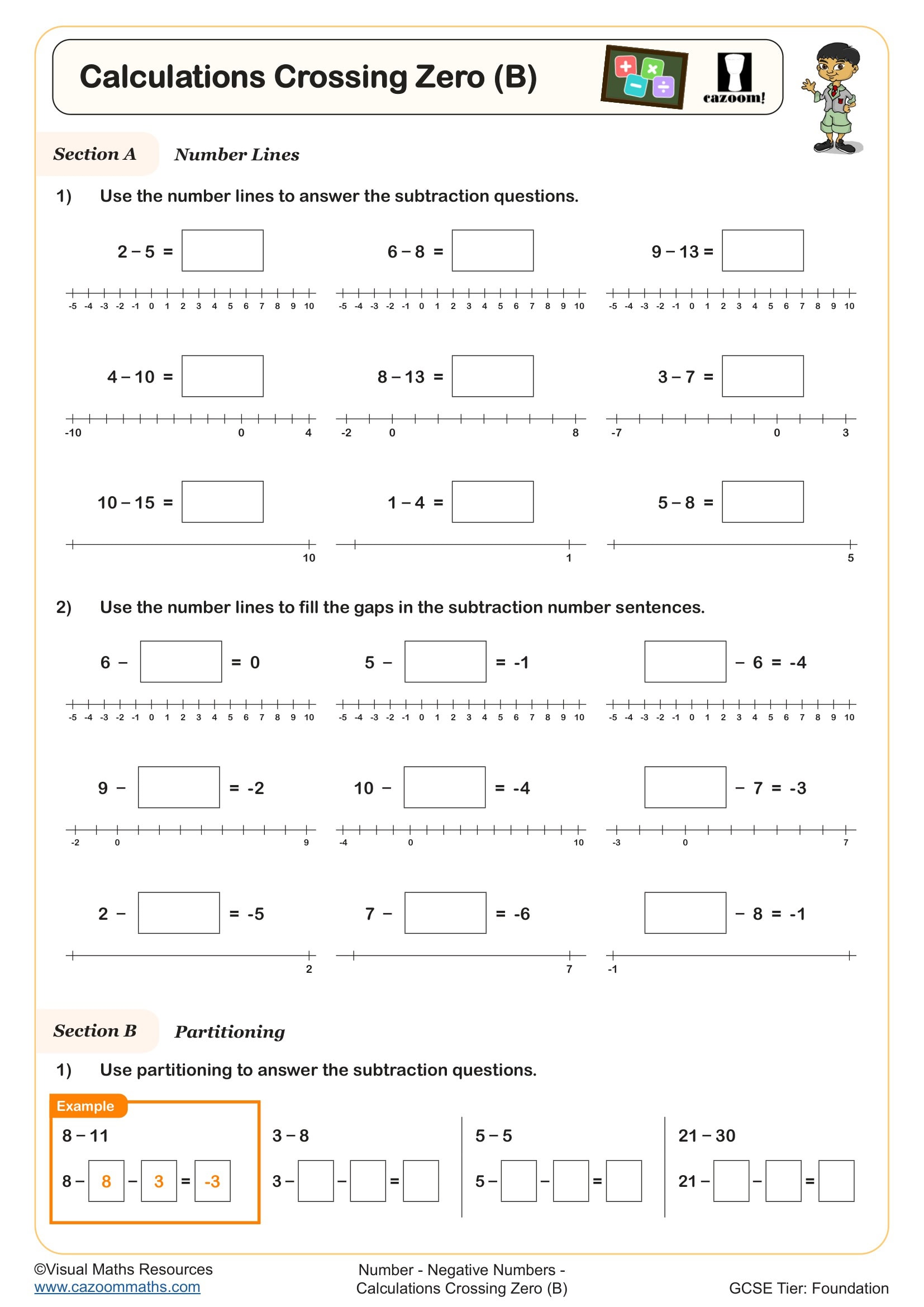
Calculations Crossing Zero (C)
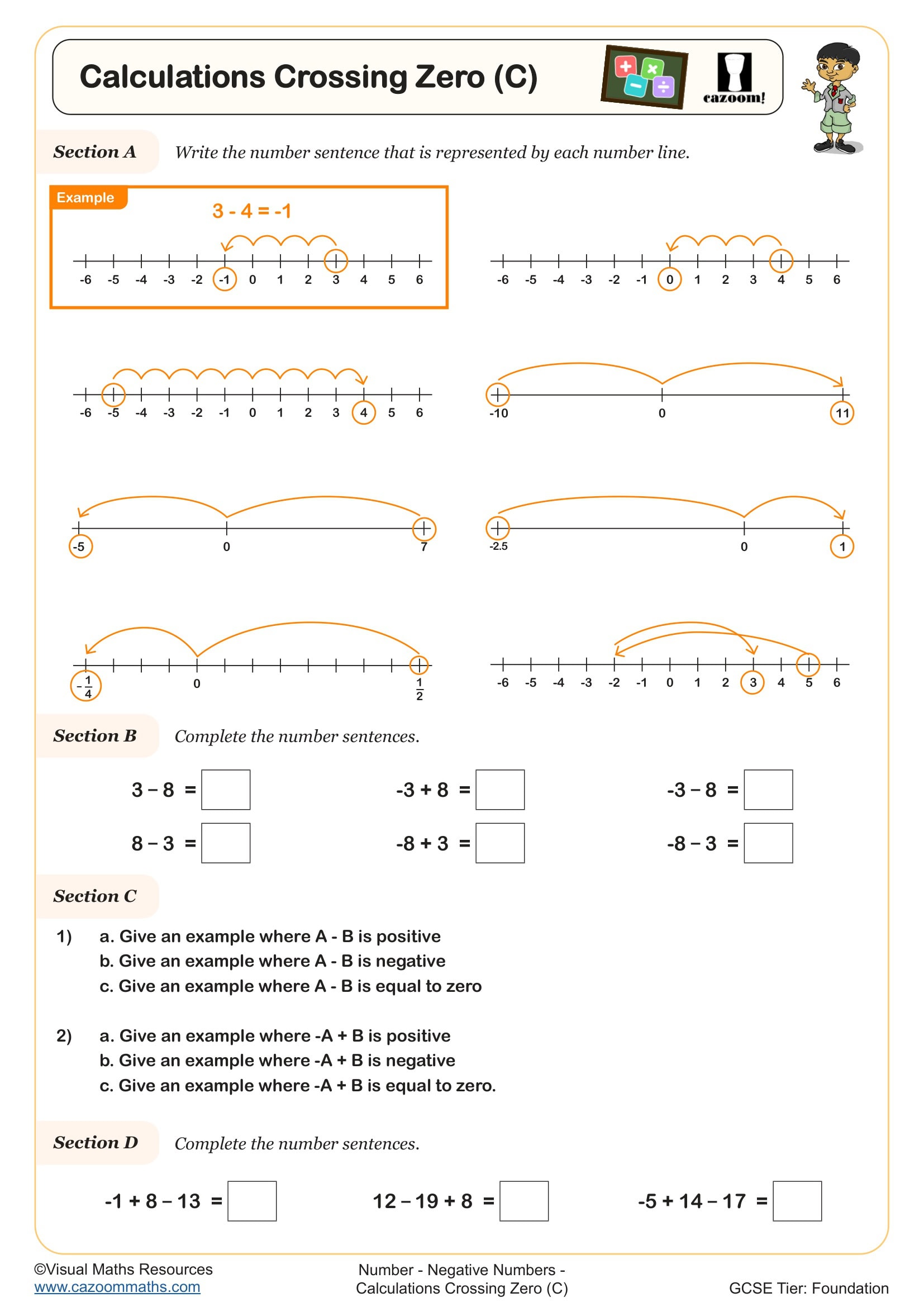
Directed Number - Addition Using Directed Counters
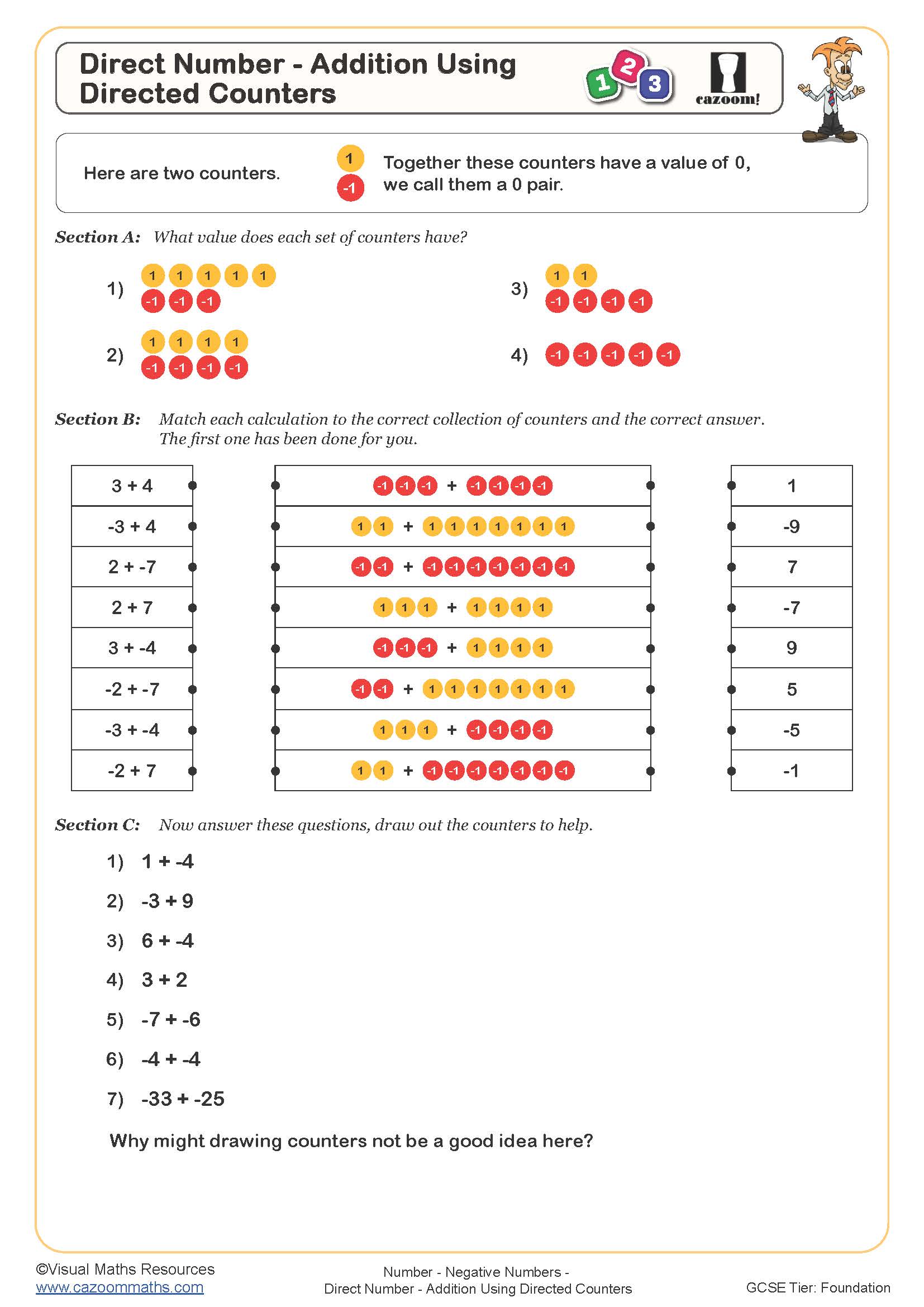
Directed Number - Multiplication Using Directed Number Counters
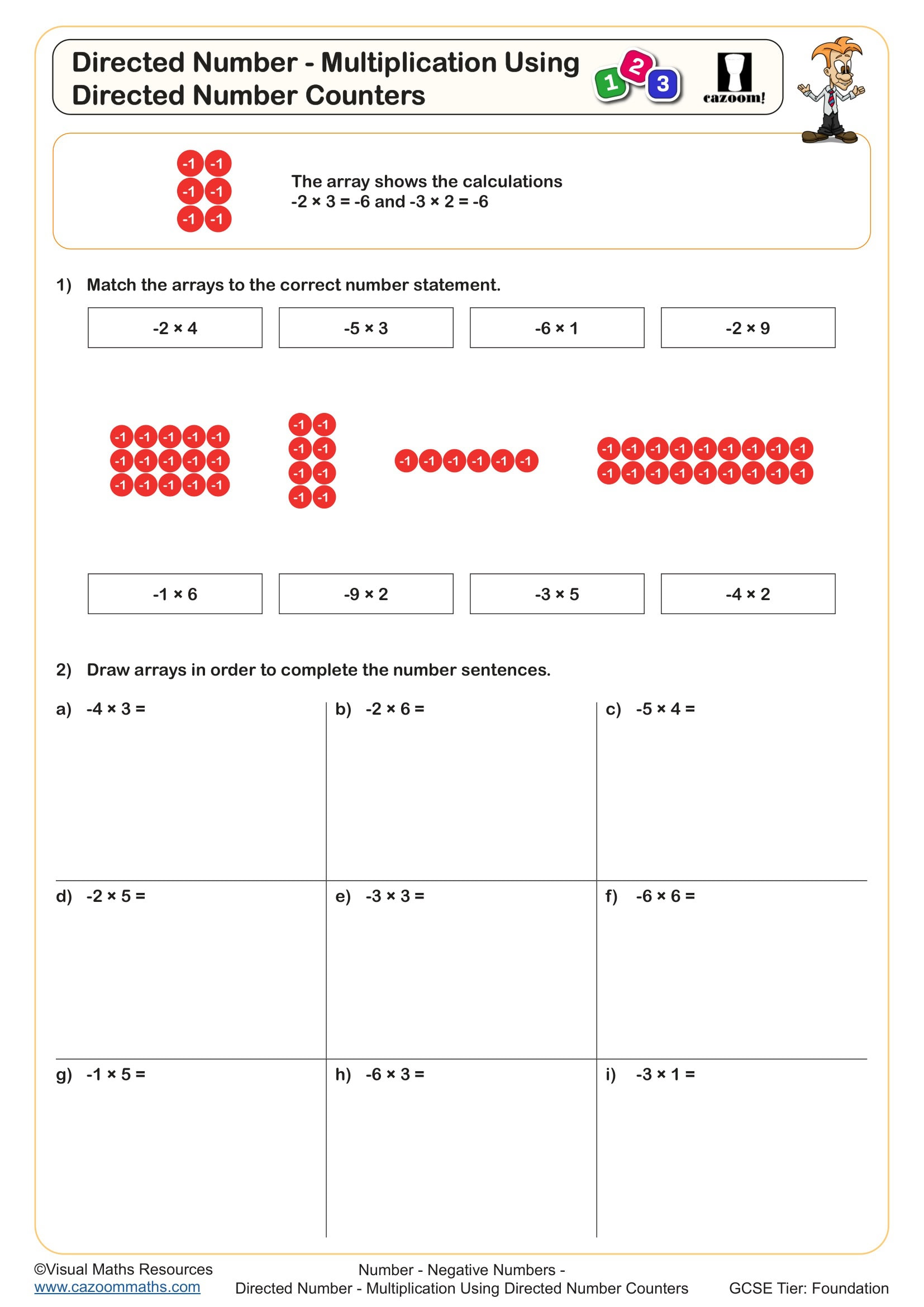
Directed Number - Subtraction Using Directed Counters
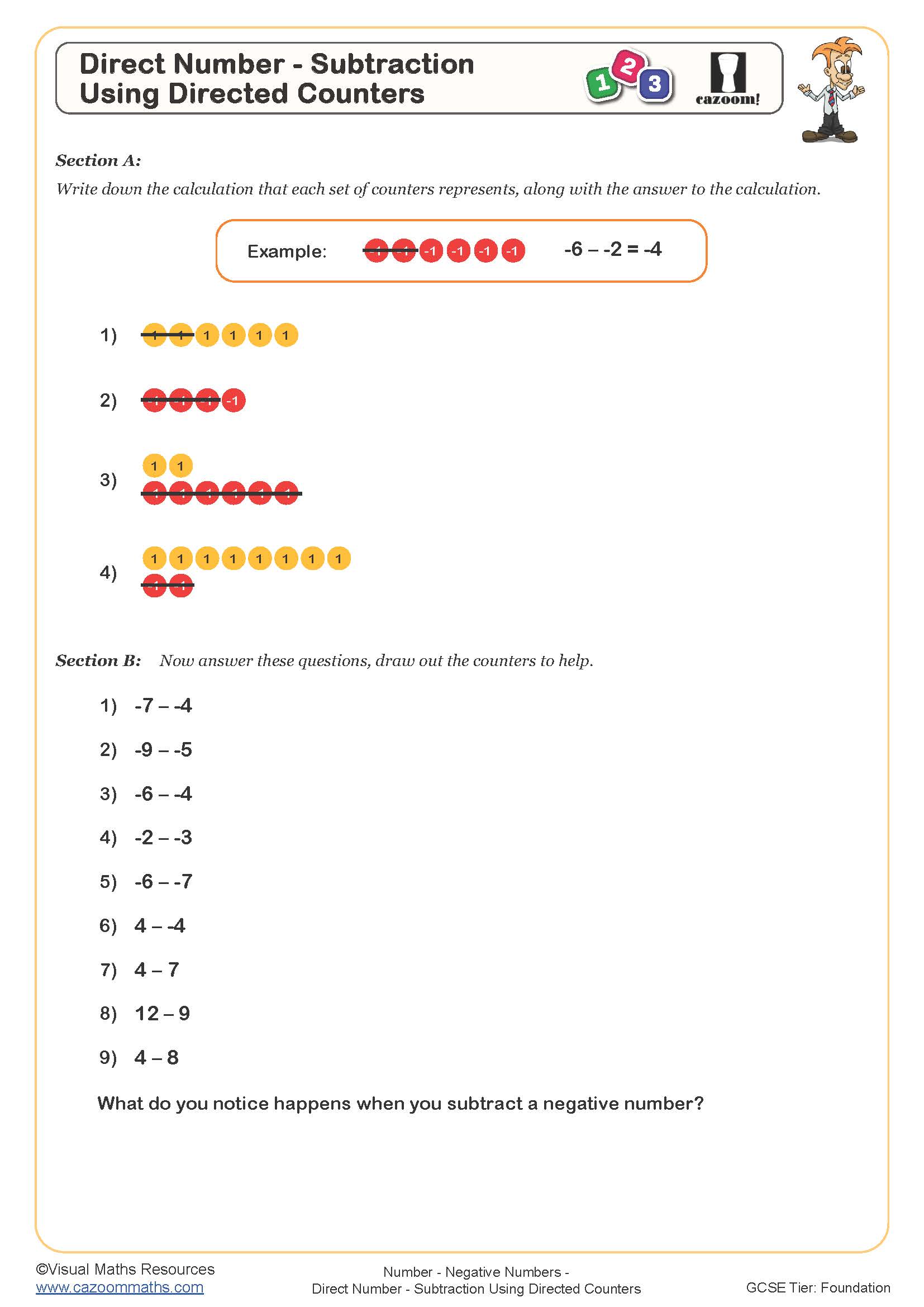
Directed Number – Addition by Pattern Spotting
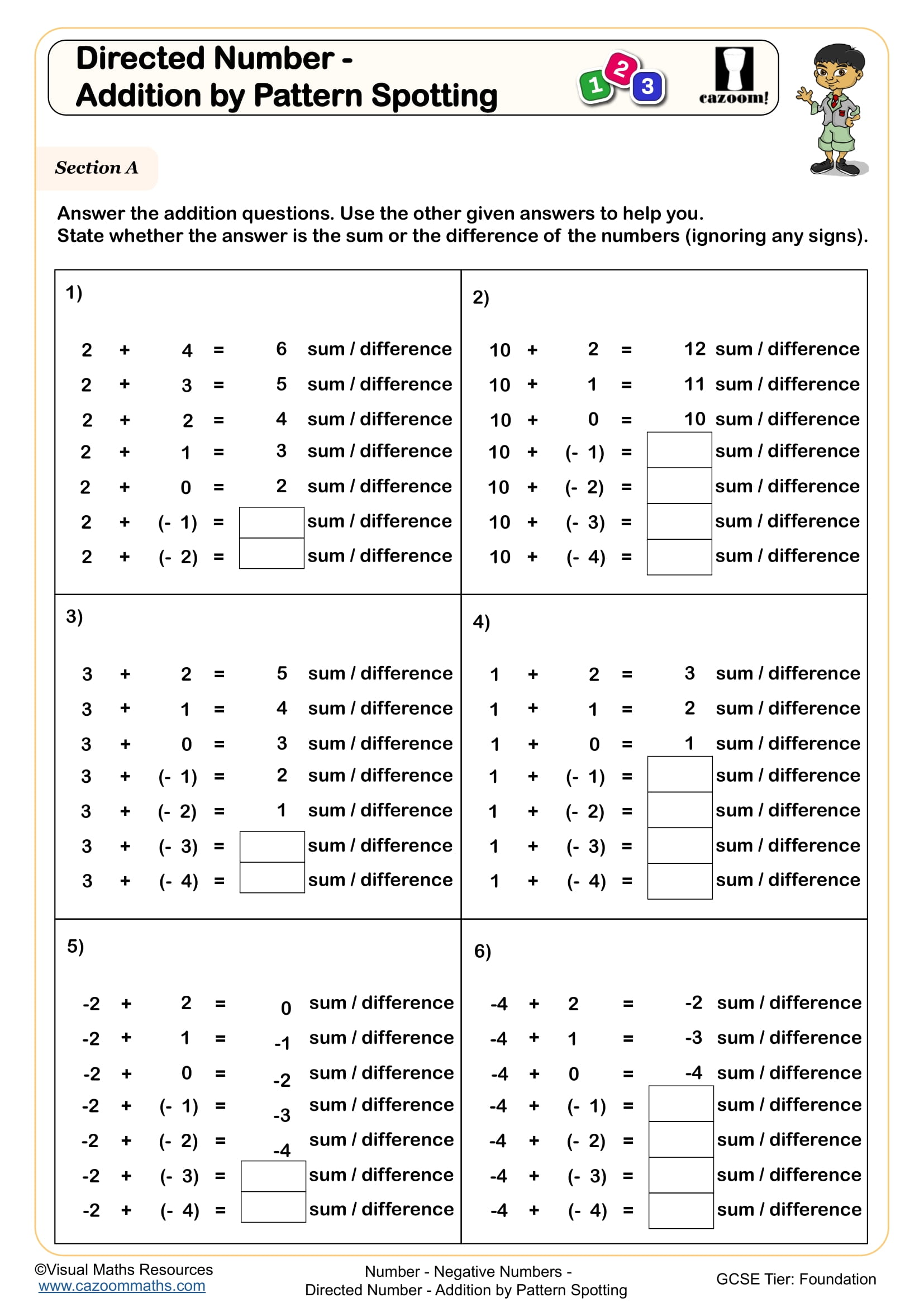
Directed Number – Subtraction by Pattern Spotting
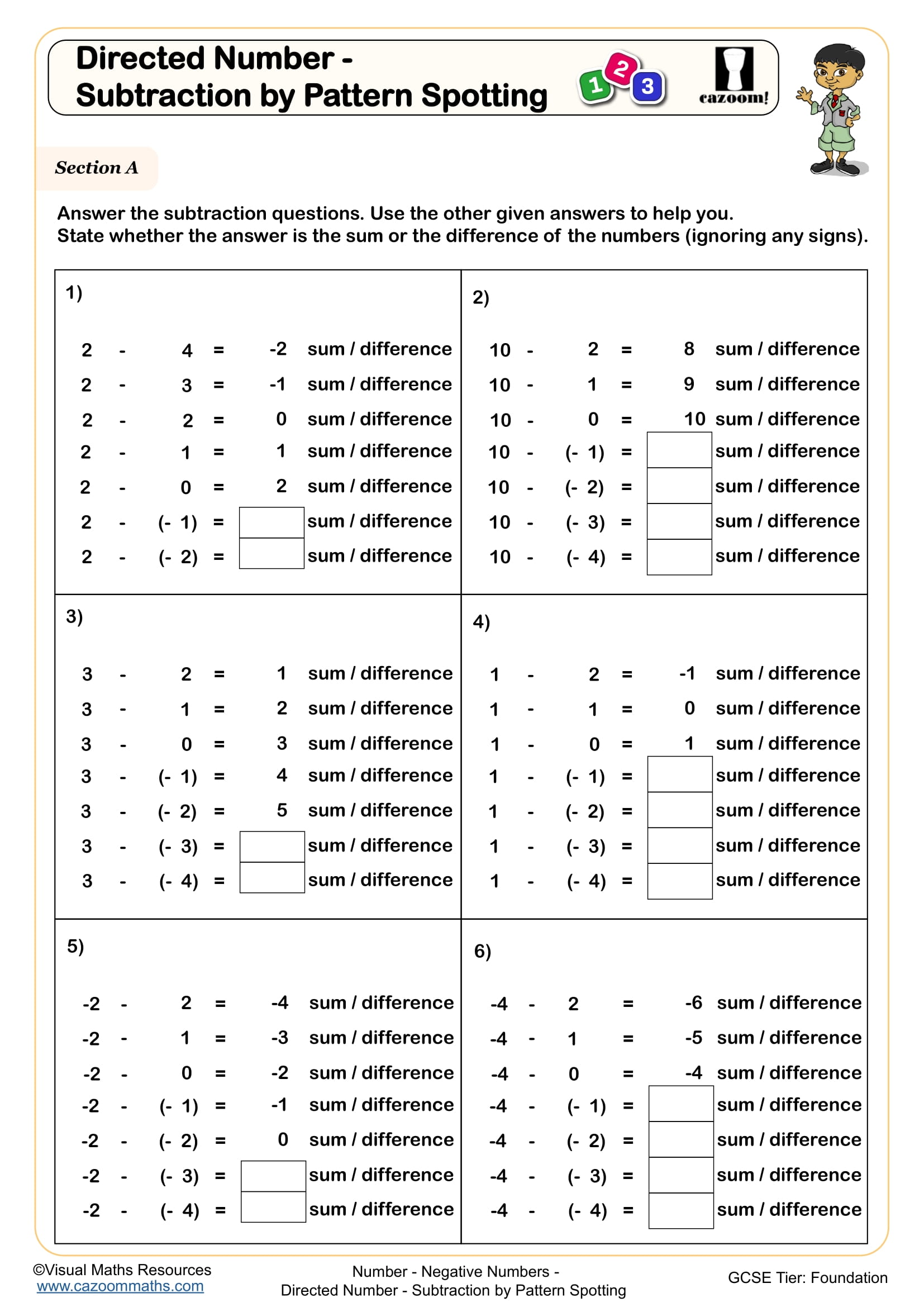
Finding the Difference - Directed Numbers
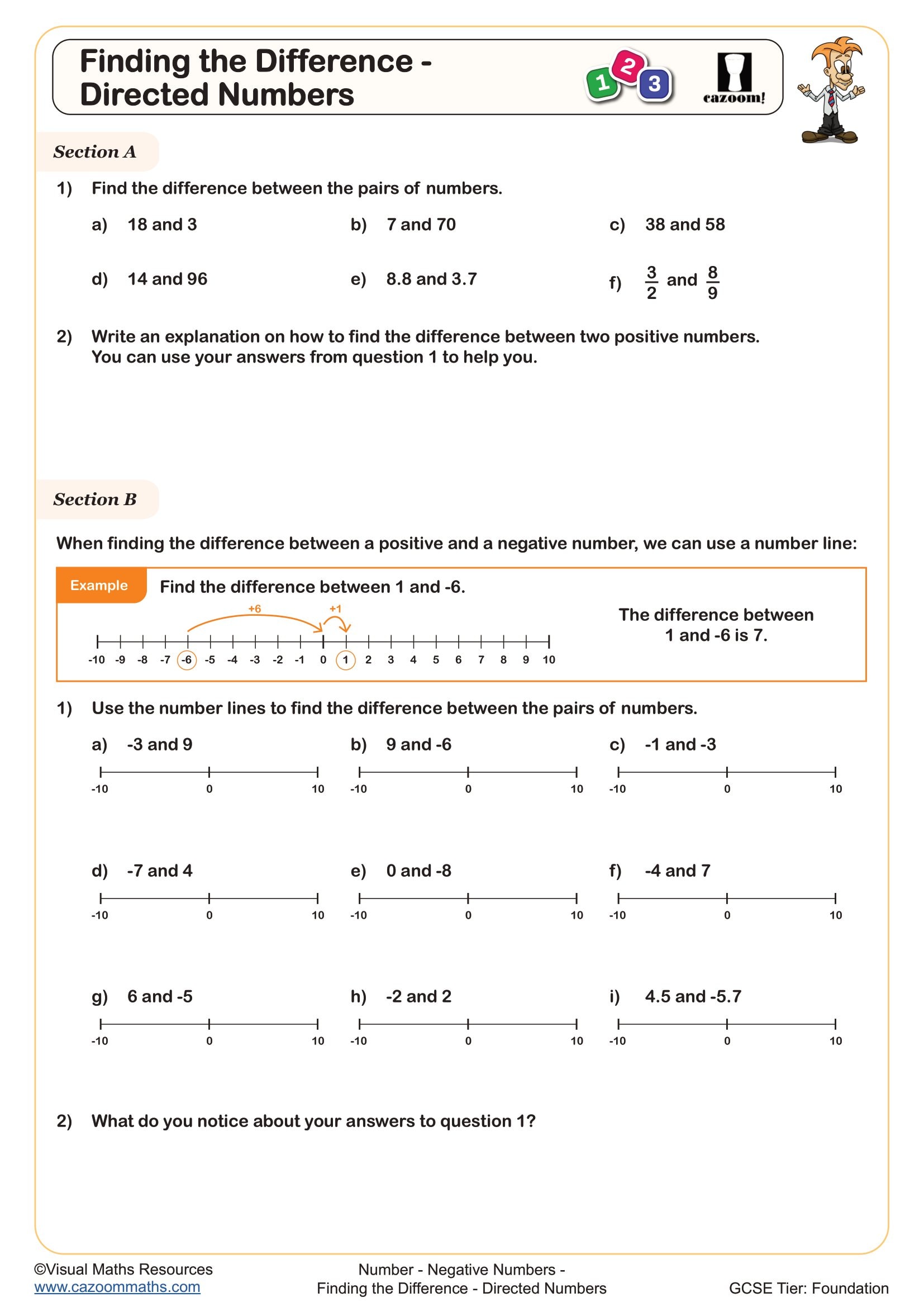
Negative Number Multiplication and Division
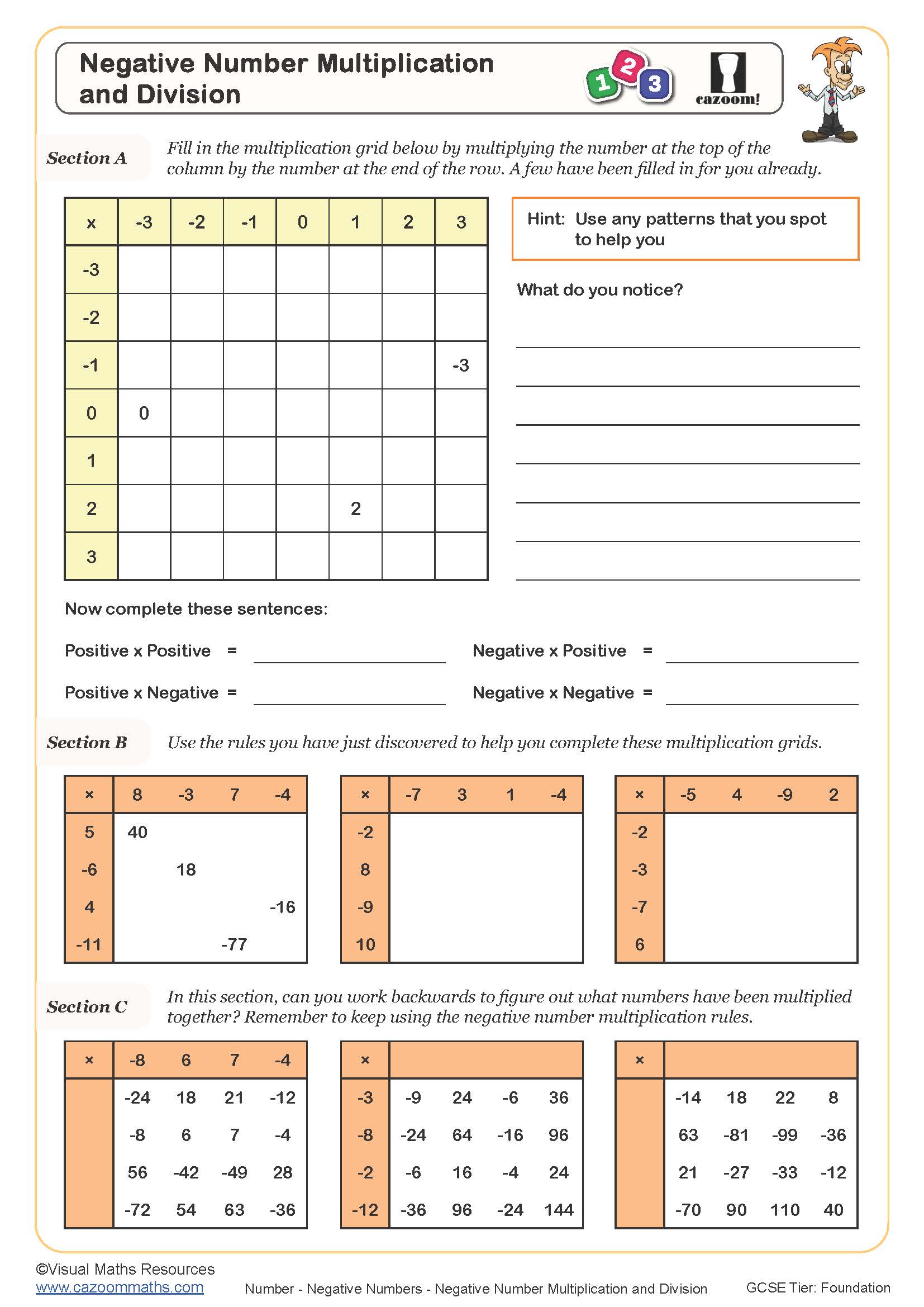
Negative number search - sums to +1
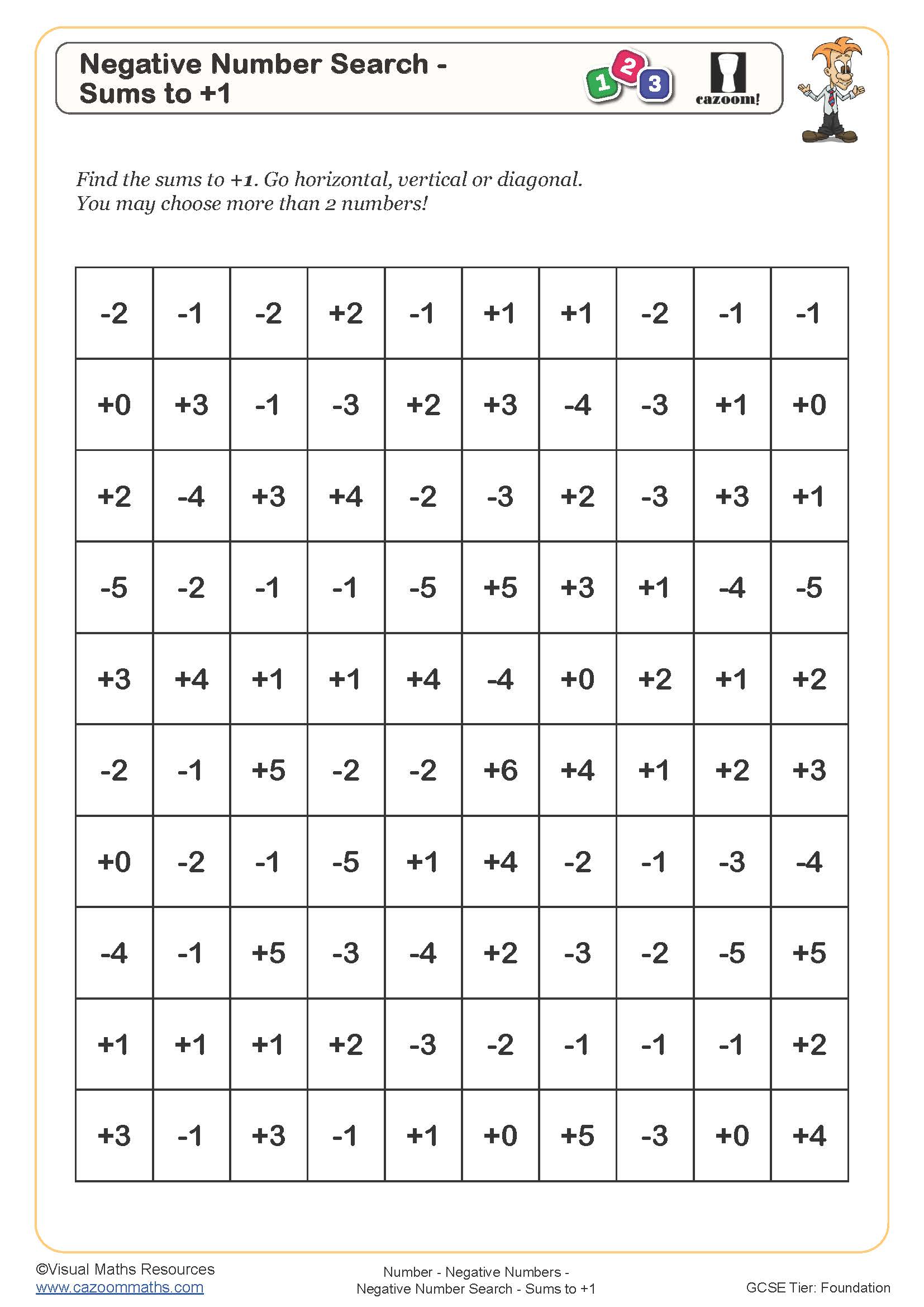
Negative Numbers - 4 Operations Puzzles
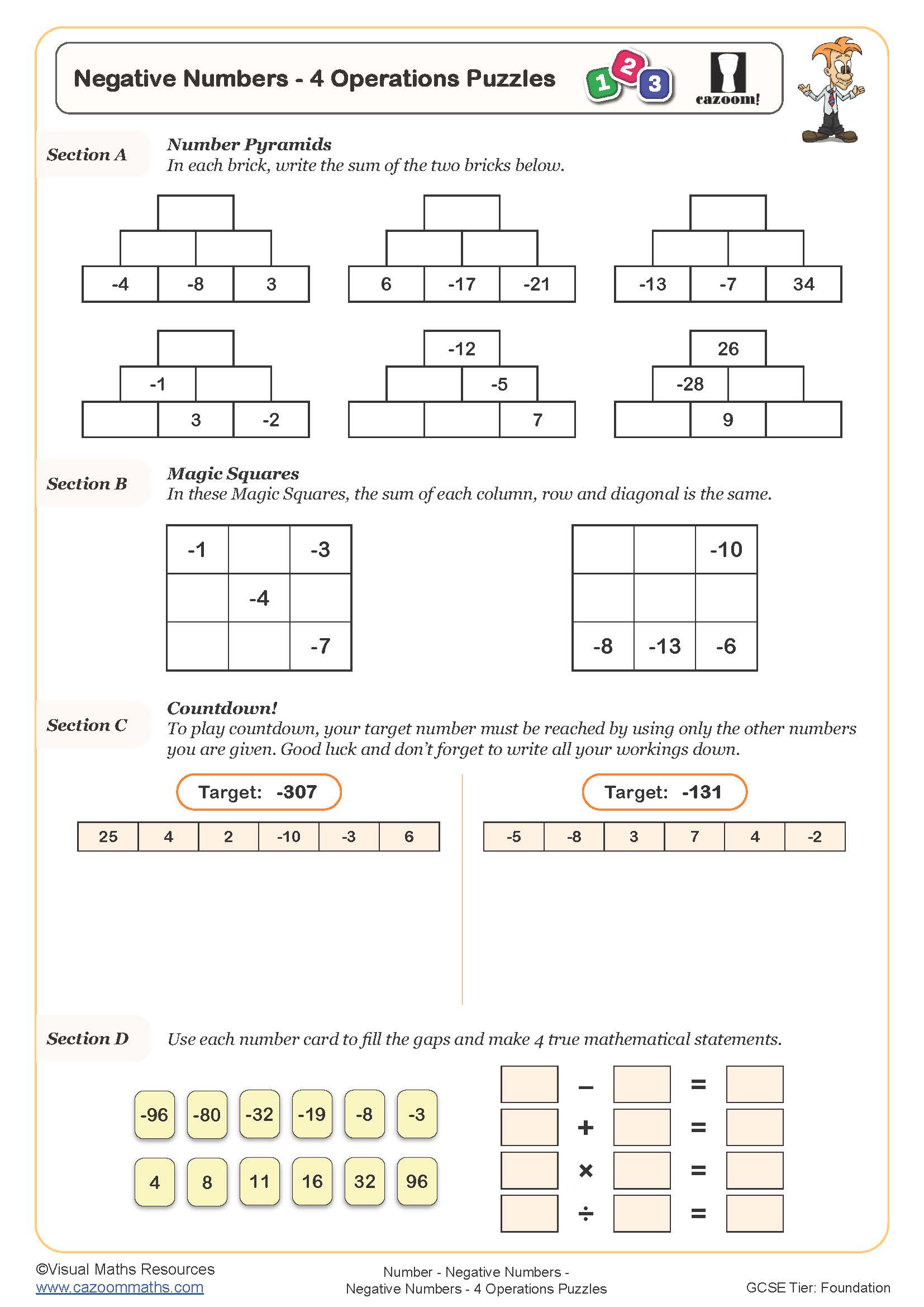
Negative Numbers 10 Minute Challenge
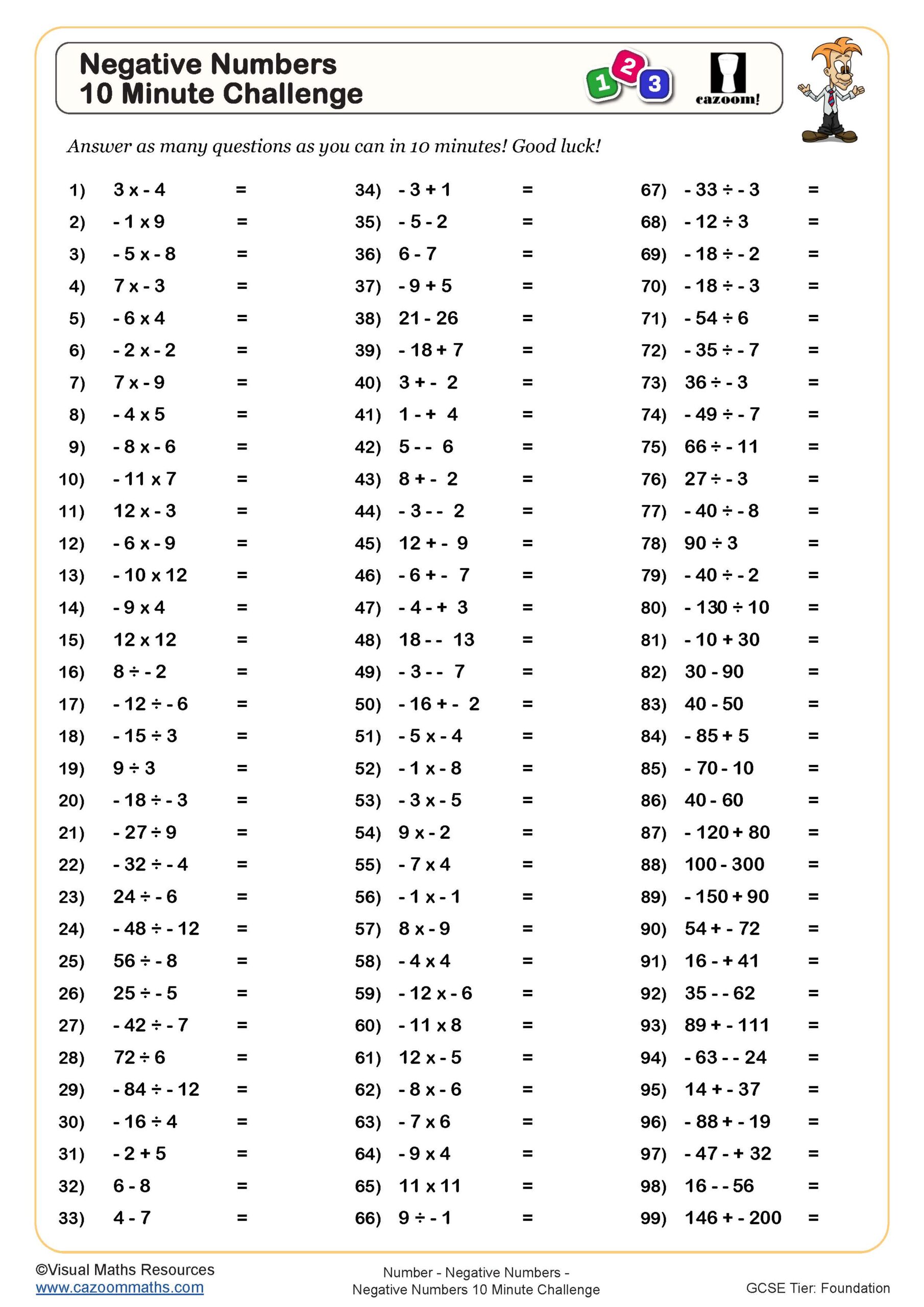
Practice Negative Number Addition and Subtraction
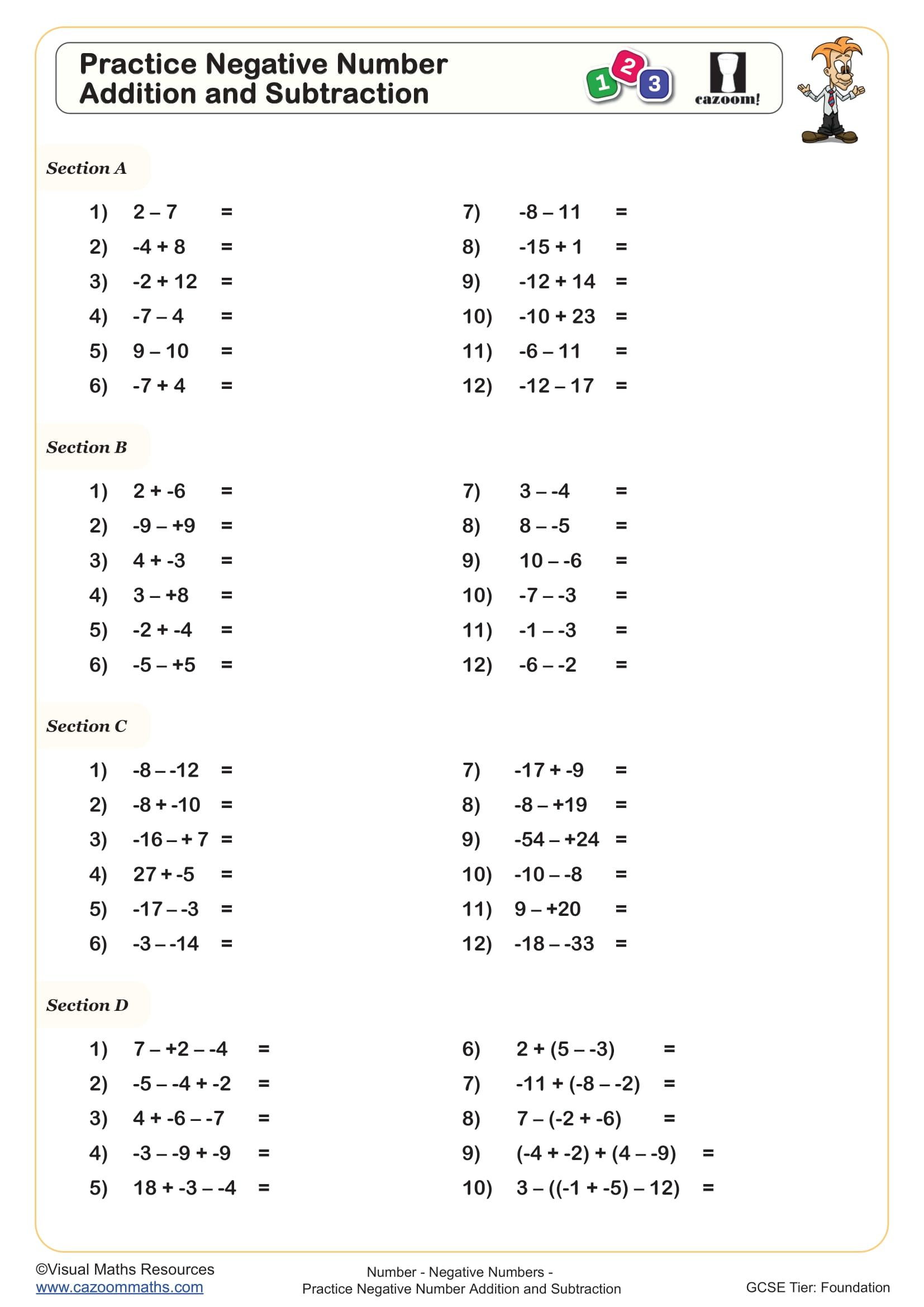
Representing Numbers - Using Directed Counters
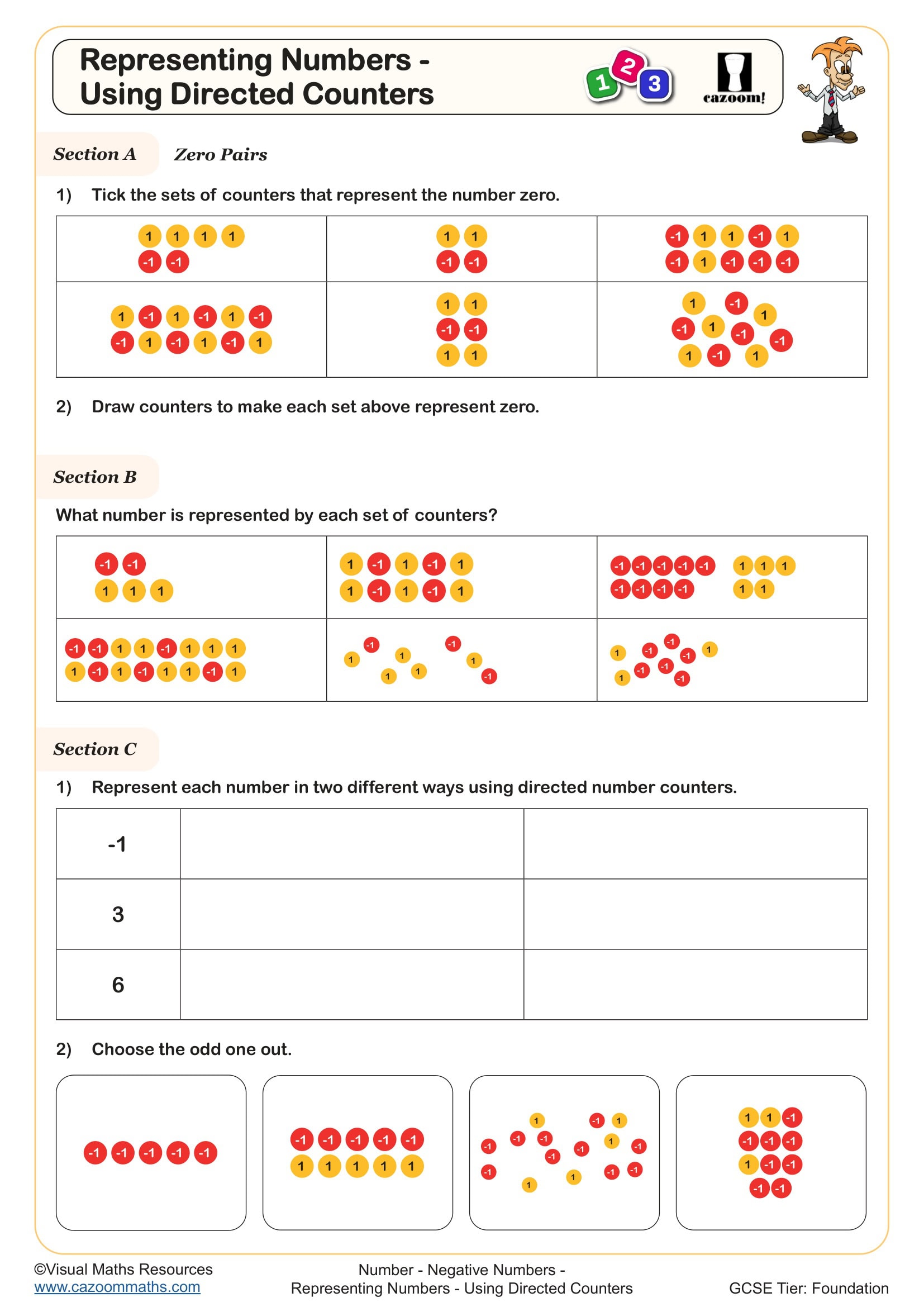
All worksheets are created by the team of experienced teachers at Cazoom Maths.
How Do Year 8 Negative Numbers Worksheets Help Students Progress?
Moving into Year 8, students encounter negative numbers embedded within algebraic expressions, coordinate geometry, and multi-step problems that demand fluency rather than hesitation. The systematic approach of these worksheets eliminates the guesswork that often accompanies directed number calculations, replacing uncertainty with methodical thinking. The practice of solving different types of questions helps students build automaticity, which becomes essential for advanced mathematical operations that include negative numbers in their complex equations. Students who work through these materials consistently demonstrate stronger performance in assessments and show greater willingness to tackle challenging problems. The step-by-step development from basic operations to compound calculations follows the expected cognitive development patterns for this important stage.
Specific learning benefits include:
• Master the four operations with integers
• Develops algebraic substitution skills
• Strengthens coordinate plotting abilities
• Improves mental calculation strategies
• Creates solid foundations for indices
• Enhances problem-solving independence
• Prepares for GCSE-level content
Which Negative Number Skills Should Year 8 Pupils Master First?
The progression through these worksheets follows the proven concrete-pictorial-abstract approach, beginning with visual number lines before advancing to pure numerical calculations. Each worksheet includes worked solutions that demonstrate step-by-step methods, revealing the logical thinking behind each operation. This comprehensive collection systematically builds from foundational concepts through to sophisticated applications, ensuring students develop both procedural fluency and deep conceptual understanding of how negative numbers function mathematically.
The worksheets in this collection include:
• Introduction to Negative Numbers — visual number lines and counting through zero
• Ordering and Comparing Negative Numbers — arranging integers and using inequality symbols
• Adding and Subtracting Negative Numbers — mastering essential operation rules
• Multiplying and Dividing Negative Numbers — understanding sign patterns and products
• Four Operations Mixed Practice — combining all operations in a single problem
• Negative Numbers in Context — temperature changes and elevation problems
• Algebraic Substitution with Negatives — evaluating expressions with negative values
• Coordinate Geometry with Negative Numbers — plotting points in all four quadrants
• Negative Numbers - 4 Operations Puzzles Worksheet — engaging puzzles requiring strategic thinking
• Negative Numbers 10 Minute Challenge Worksheet — rapid-fire practice for building speed
Why Year 8 Negative Numbers Worksheets Beat Textbook Exercises
Teachers consistently select these worksheets because they eliminate the common pitfalls found in traditional textbook approaches, which often present negative numbers as isolated topics rather than integrated skills. The visual clarity of Cazoom Maths resources reduces cognitive overload, allowing students to focus purely on mathematical reasoning. The worksheets contain strategically arranged questions which build learning progression through purposeful sequencing, and they maintain deliberate distance between identical problem types to stop students from memorising answers by rote. The materials focus on addressing particular misconceptions that Year 8 students commonly demonstrate during their learning process. These materials focus on specific misconceptions that Year 8 students commonly demonstrate in their learning process. The printable format allows teachers to use it right away for different teaching activities, including initial activities and homework assignments. Time-pressed educators particularly value the included answer keys with worked solutions, which facilitate quick marking whilst providing intervention opportunities.
Everyday Maths: Where Year 8 Students Use Negative Numbers in Real Life
Understanding negative numbers empowers students to interpret data and solve practical problems across numerous real-world contexts. These mathematical skills appear throughout daily life, often in situations pupils already encounter.
• Bank statements showing overdrafts and available credit
• Weather apps displaying winter temperatures
• Gaming leaderboards with penalty scores
• Sea level measurements for geography projects
• pH scales in science experiments
• Profit and loss calculations in business studies
• Time zone differences when travelling
• Electric charge notation in physics lessons